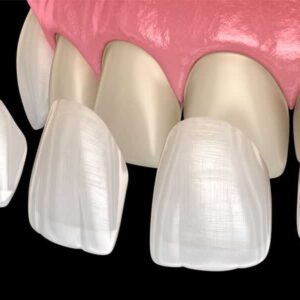Description
Familiarity with Treatment
All-on-4 dental implants are a treatment concept that provides a full set of fixed, non-removable artificial teeth supported by four dental implants. This approach is designed to provide a stable and functional solution for individuals who have lost all or most of their natural teeth.
Who is it Suitable for?
All-on-4 dental implants are suitable for individuals who are edentulous (missing all teeth) or soon-to-be edentulous and desire a fixed, non-removable solution for tooth replacement. This treatment concept is often considered for individuals who may not be suitable candidates for traditional dental implants due to bone loss or other factors.
Who is it Not Suitable for?
All-on-4 dental implants may not be suitable for individuals with certain medical conditions or habits that can impair healing, such as uncontrolled diabetes, heavy smoking, or alcohol abuse. Additionally, individuals with insufficient bone density or compromised healing capacity may not be suitable candidates for this procedure.
Advantages
- Immediate function: All-on-4 dental implants can often support a temporary or permanent prosthesis immediately after placement, allowing for immediate restoration of function and aesthetics.
- Reduced need for bone grafting: The All-on-4 concept is designed to maximize the use of available bone, reducing the need for extensive bone grafting procedures.
- Improved stability and chewing function: The concept provides a stable and functional solution for individuals with significant tooth loss, restoring the ability to chew and speak with confidence.
Complications
- Infection: As with any surgical procedure, there is a risk of postoperative infections.
- Implant Failure: While dental implant success rates are generally high, there is a small risk of implant failure, including with the All-on-4 concept. Factors that can contribute to implant failure include poor oral hygiene, smoking, certain medical conditions, and inadequate bone support.
- Nerve and Tissue Damage: In rare cases, nerve damage or tissue damage may occur during the implant placement procedure.
Preoperative Care
Before undergoing All-on-4 dental implant placement, a comprehensive evaluation is performed by a dental professional. This may include a review of the patient’s medical history, dental examination, and imaging techniques (such as X-rays or CT scans) to assess the bone density and overall oral health. Careful patient screening and selection are crucial when considering the All-on-4 concept.
Postoperative Care
After All-on-4 dental implant placement, postoperative care may involve managing pain and discomfort, as well as following specific instructions provided by the dental professional. This may include taking prescribed medications, practicing good oral hygiene, and attending follow-up appointments to monitor the healing process. Patients should be instructed on reduced functional capability and soft dieting during the initial postoperative period to decrease the risk of overload and ensure the success of the implants.


Reviews
There are no reviews yet.